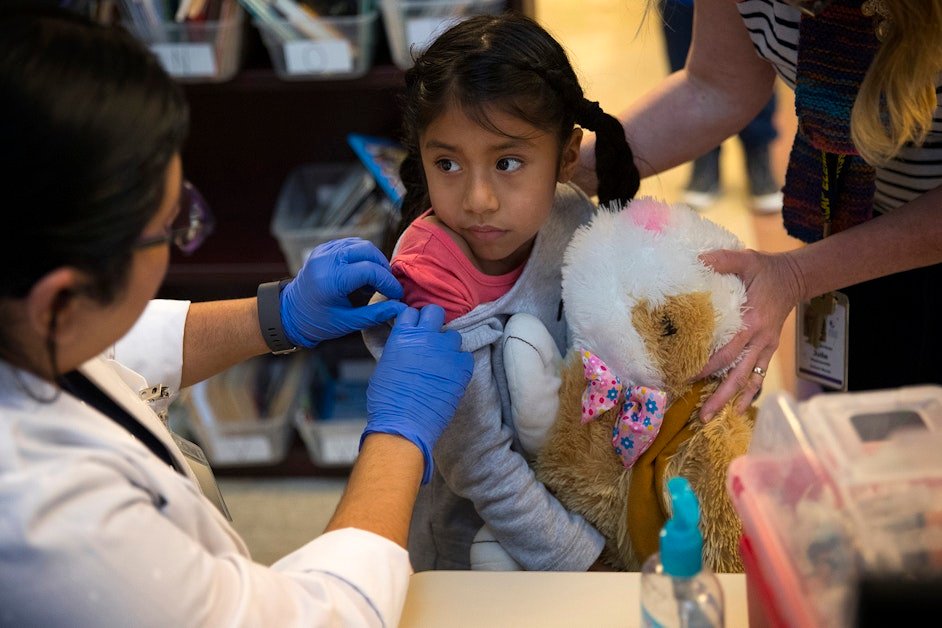Cold and flu season, also known as mid-October, is here. But this year, some advances in vaccines could help families keep the virus at bay.
One new development is a nasal spray flu vaccine that people can self-administer called FluMist. This spray was approved by the FDA just last month.
“You can get a prescription from your doctor, pick up FluMist at your pharmacy, and give it to yourself or your children at home,” said Dr. Helen Chu, an infectious disease physician at UC Medicine. “And I think that’s really helpful, especially when families are so busy.”
Chu said she hopes the change will lead to more children receiving the flu vaccine.
So far this fall, only a few dozen cases of influenza have been recorded in King County. Experts predict the worst of the wave will hit in December and January.
But influenza isn’t the only thing families need to protect against.
In the past, the respiratory virus RSV was the leading cause of hospitalization in infants. A new respiratory syncytial virus vaccine came on the market last year, which could potentially keep many babies out of the hospital, Chu said. “Vaccinating infants at birth can prevent 70 to 80 percent of RSV hospitalizations,” she says. This means hospitals are less likely to reach capacity and will not have to send infants to other hospitals, a challenge that children’s hospitals have faced during past RSV outbreaks.
Last year, the U.S. didn’t have enough new respiratory syncytial virus vaccines for infants, but that’s not a problem this year.
The CDC recommends getting the RSV vaccine during pregnancy or when your baby is born. High-risk infants are to receive a second vaccination one year later. This includes:
Children born prematurely with chronic lung disease Children with severe immunodeficiency Children with severe cystic fibrosis American Indian and Alaska Native children
It is also recommended that older adults aged 75 and older or 60 and older who are at high risk receive RSV vaccination. High-risk categories include:
Adults with certain chronic conditions, such as lung or heart disease Adults living in nursing homes
Adults who received the RSV vaccine last year do not need to get it again this year. The vaccine provides protection for at least two years.

